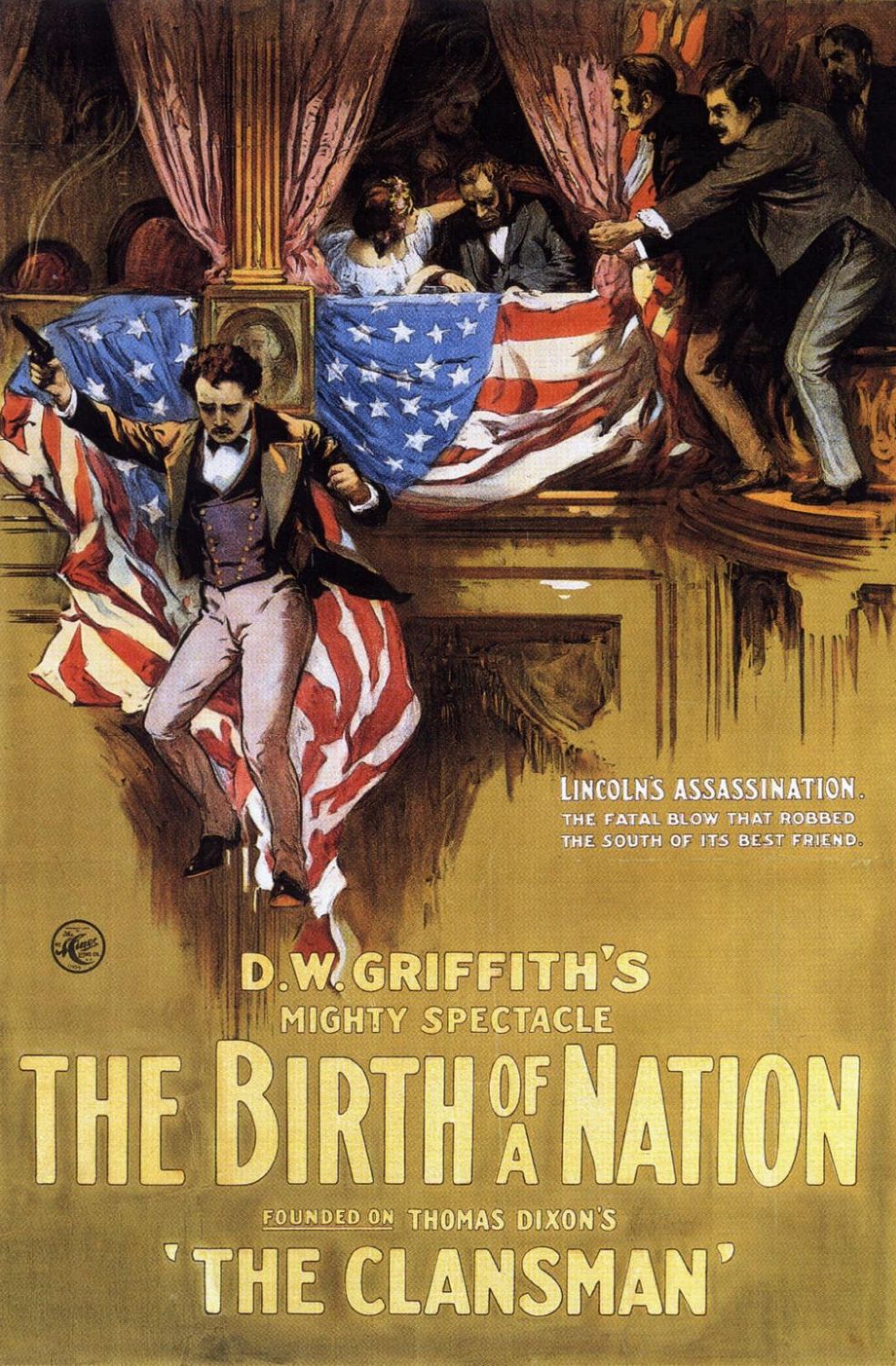It is really, really difficult to not hate D.W. Griffith’s The Birth of a Nation. A film made by a man so ignorant and blatantly racist that it took me about nine different attempts of pausing and taking a break from the film to finally finish it over the course of two days. I’m sure the controversy this film stirred has been talked to death among countless reviews, essays, and more, but it’s simply too difficult to ignore the fact: this film is as unflinchingly bigoted and racist as it gets. Yet, simultaneously, it’s difficult to ignore just what this film did to the art of cinema – and that’s what I’ll do my very best to focus on in this review.
The film follows two families on opposing sides of the American lines during the 1860’s when America was on the verge of a national war and racism was alive and well. Comprised of two parts (one focusing on the calm before the Civil War storm and its extensive battle, and the second focusing on the subsequent Reconstruction Era), the film was the longest and most extensive American audiences had witnessed before. In fact, the film was the highest grossing for many years following its release and spawned sequels (that’s right, sequels! So, if you didn’t get enough racism the first time, come on down and get you some more!). However, the reason this film was such a massive hit was not due to its content (despite popular belief, not everyone was on the same wave-length as Griffith in 1915; in fact, it stirred up quite a controversy and he had to make Intolerance as a result of the backlash due to his own intolerance); rather, the film was a hit due to its never-before-seen use of camera movement, close-ups (particularly with the "iris effect" shown below), its own original music score (though borrowing from the classics as well), parallel editing techniques, wide-ranging narrative scope, and many other story-telling devices that are now used as common practice in many of today’s films.
Attempting to ignore the blatant discriminatory attitudes the film portrays, it’s easy to see why this film is still held in such high regard. In fact, if it weren’t for Griffith’s intolerant behavior, historians, critics, and film fans alike would celebrate this film for giving birth to the art of cinema. Unfortunately, not only did it inspire countless filmmakers and artists alike, but it also rejuvenated the spirit of the notorious Ku Klux Klan – hence why they still remain to this day.
But isn’t that the power of film? Trying to put aside my personal feelings about the situation, the influence this one film had on so many others – the effects of which we still feel now and forever – only further demonstrates the incredible power of cinema and why it remains such a celebrated art form to this day. Imagine the year is 1915 and you walk into the theater to see this film and you are simply blown away by the technical achievement at hand. It’s almost like a night out at the opera, but instead the actors are simply pasted onto hundreds of photographs rolling by at light-speed. And there’s a story that spans years with countless characters to become attached to and empathize with (depending on which side you’re on). And the battle sequences almost feel like you’re right there on the field. And the camera gallops along with the horses, and the camera closes in on the actors’ faces and it feels so intimate and real. What a wondrous treat the cinema must have been on that opening night!
Sadly, the film’s regrettably positive representation of such a racist culture nearly makes any admiration for the technical achievement feel like an afterthought. Aside from each of these technical accomplishments, the only positive remark I can make about the film is that it spawned countless others to command the screen just as D.W. Griffith did even better – and far less narrow-minded. For that, I am grateful as I’m not sure where I would be today without my love of film and I couldn’t imagine a world without its existence, and I am equally grateful to live in a world that no longer allows films like The Birth of a Nation to get made… unless it’s title is borrowed by a non-white with a proper focus on the trials and tribulations of his culture.
6.5/10 -- Rating based off the film's quality; with personal feelings, an easy 1/10.



No comments:
Post a Comment